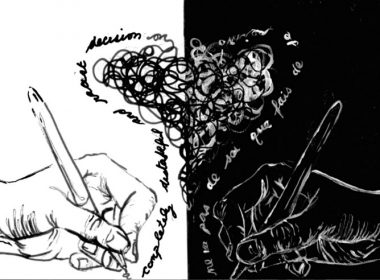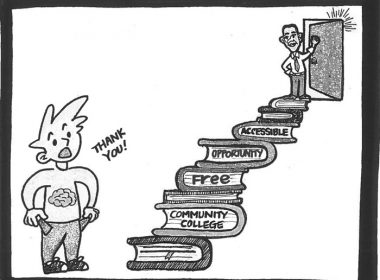On Jan. 21, when asked about birth control and family planning for Catholic families, Pope Francis’ answer proved to greatly disappoint many people, both Catholics and non-Catholics alike. While it is understandable that it is impossible to cater to the varied interests of more than one billion Catholic followers, two[Read More…]
Opinion
Opinions from our editorial board and contributors.
Commentary: Diffusing anglophone tension in Quebec
Anglophone-francophone relations in Quebec have not been off to a good start in 2015 as the tension and unrest within anglophone communities is reaching a climax. Graham Fraser, the official language commissioner of Canada, recently made a call for the Quebec government to create an Office of Anglophone Affairs, a[Read More…]
Off the Board: The folly of satirizing North Korea
Satire has often been an effective form of political protest used to garner attention towards raging dictatorships around the world and to provide a common ground upon which individuals can unite to creatively point out the disfunctionalities of authoritarian systems. The latest incident that has incited uproar on media outlets[Read More…]
Commentary: Insensitivity towards blackface fuels cultural tensions
If you have ever lived in Montreal, you have almost certainly experienced or heard of on-going disputes between francophones and anglophones about language, tuition fees, or even religion. The most recent source of tension between the two groups emerged when an actor used blackface to mimic Montreal Canadiens superstar P.K.[Read More…]
Editorial: Balancing peer support and inclusivity essential for progress
Queer McGill, as a part of its Rad Sex Week, will be holding a workshop on Jan. 28 entitled “Desires: A QT*POC Exploration,” an event open only to those who identify as queer or trans* people of colour (POC). The exclusion of white students in the workshop’s description incited significant[Read More…]
Editorial: Anonymous’ attacks ill-suited to address homelessness in Montreal
In the midst of plummeting temperatures, the Montreal police used bulldozers on Jan. 7 to clear out belongings from a homeless encampment at Viger Square. The police justified this action by asserting that the encampment posed a public health risk, and that it was too cold for the homeless to[Read More…]
Commentary: On the path towards equal access to education
Earlier this month, The White House released a short video on its Facebook and Twitter pages in which President Barack Obama made a proposal to make community college free for two years of each students’ education. As long as students attend half of the required classes and maintain a 2.5[Read More…]
Commentary: Who is Charlie?
Charlie is the hero of the freedom of the press. Charlie has, rightfully, taken freedom of speech to its very limits, pushing past the boundaries of political correctness. Charlie is a martyr. This has been the prevailing narrative since the shooting at Charlie Hebdo. But Charlie is not a supporter[Read More…]
Commentary: The American health care distraction
In the debate over health care reform in Canada, defenders of the status quo often resort to the tired claim that a greater role for competition, private financing, or private provision of health care services in Canada would mean the ‘Americanization’ of health care. Indeed, the claim is often made[Read More…]
Commentary: The destructive effects of divestments and boycotts
The Boycott, Divestment, and Sanctions (BDS) movement against Israel has been gaining momentum recently. Around two weeks ago, the student workers’ union of the University of California school system voted favourably on a ballot to support the movement, urging the university and the federal government to divest from stock associated[Read More…]












